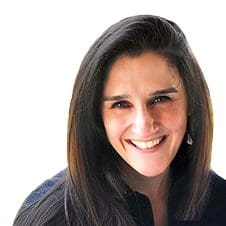01. Benefits of a Dietitian
How a Dietitian Can Help Mesothelioma Patients
A dietitian is the main resource for a patient’s mesothelioma diet and nutrition needs. They can provide help to patients undergoing mesothelioma treatment and mesothelioma survivors. They may recommend changes in diet to ease treatment side effects. Dietary changes can also help patients maintain a healthy weight and find their appetite, among other things. Diet recommendations may include eating nutrient-rich fruits and vegetables and high-protein, high-calorie foods.
Registered dietitians (RDs) are an important part of a cancer patient’s care team. A dietitian can work with and provide support to other team members. Many dietitians work at hospitals or cancer centers where patients receive treatment. This helps patients with mesothelioma cancer receive comprehensive care.
A dietitian will have scientific knowledge about diets and nutrition for cancer patients. They can recommend the best foods for a mesothelioma patient’s health. They can also provide information about which foods to avoid.
Cancer dietitians can work with patients on their nutrition during and after mesothelioma treatment. They will provide individualized care based on a specific patient’s needs. They can also answer any questions a patient has about diet and nutrition.
A patient’s dietary and nutritional needs can also change over time. A patient in treatment will likely have different dietary needs from one who is in recovery. A dietitian can help a patient adapt to these changes. A patient should not make changes to their diet before speaking to their dietitian or doctor.
Resources for Mesothelioma Patients
02. How to Find a Dietitian
How Mesothelioma Patients Can Find the Right Dietitian
Dietitians are an important part of a mesothelioma patient’s health care team. For example, they can make recommendations that may help a patient ease side effects from treatments. For instance, chemotherapy and radiation can cause nausea and other side effects that dietary changes may help manage.
Mesothelioma doctors know that proper diet and nutrition are important for their patients. They can work with dietitians to help provide comprehensive care.
Hospitals and other medical facilities may have their own inpatient dietitians. A mesothelioma doctor can also provide a patient with a referral. This allows patients to see a dietitian at convenient locations, including:
- A local hospital’s outpatient department
- A local physician’s clinic
- An RD’s practice near the patient’s home
The best dietitian for a person with mesothelioma will have experience working with cancer patients.
03. Nutrition Resources
Other Nutrition Resources for Mesothelioma Cancer Patients
Mesothelioma patients may also seek supplemental resources to manage their diet and nutrition. These resources can help patients and their loved ones by providing extra support. They can help answer patients’ questions, keep them organized and provide inspiration.
Patients should still consult their dietitian before making any dietary changes. A dietitian is a cancer patient’s best resource for all their dietary and nutritional needs. A patient’s doctor may also be able to recommend additional resources.









